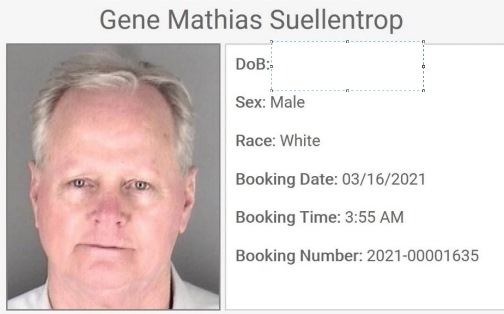Only specially certified doctors could recommend cannabis, and only to their long-term patients.
by Stephen Koranda, Kansas News Service
Kansas stands among a shrinking handful of states that makes cannabis an outlaw drug, even as a medical tool.
Lawmakers trying to overcome resistance to any legalization are looking at adopting medical marijuana rules so tight that, for instance, only patients who’ve been with specially certified doctors for a full year could get it.
A bill in the House borrows and tweaks strict limitations tried in other states. Backers hope the plan can overcome long-standing opposition from some conservative Republicans and law enforcement groups.
Republican Senate President Ty Masterson said he doesn’t want a system where anyone can get a marijuana recommendation.
“You don’t really believe we have that many 18-year-olds with glaucoma that need to smoke weed for a medical benefit,” he said. “That’s recreational.”
To win over people like Masterson, this year’s bill borrows restrictive policies tried elsewhere.
From Ohio, the latest Kansas plan takes the idea that only physicians with a specific certification could recommend marijuana for about two dozen conditions ranging from seizures to chronic pain. Plus, the marijuana could not be smoked, but would be available in other forms like edibles and oils.
The Kansas plan borrows an idea from New Jersey’s medical marijuana law and makes it even more limiting. Patients would need to see one of those certified physicians for a year before getting a recommendation for marijuana.
State regulators could also create alternate ways to establish that physician relationship in the future.
The limits have attracted support from some Republicans. Democratic Gov. Laura Kelly has also said she supports legalizing medical marijuana. She proposed using revenue from medical cannabis to pay for Medicaid expansion, but that bill isn’t getting traction.
Under the plan being considered in the House, Kansas would legalize medicinal marijuana with some of the tighter rules in the country. Even with that, it still must overcome opposition from some conservative Republicans and influential law enforcement groups.
Law enforcement groups say because marijuana is illegal under federal law, state legalization establishes a conflict. It also creates other issues, like requiring a database so officers can verify medical marijuana ID cards.
In Ohio, a law that was nearly as restrictive as the Kansas proposal overcame opposition and took effect two years ago.
“We thought we were late to the dance. You guys are way behind us,” said Ohio advocate Mary Jane Borden, who helped the Ohio Rights Group push for that state’s law.
Borden said the tight rules in Ohio create some challenges. In some areas, there’s a shortage of doctors with a marijuana certification and places to buy cannabis.
Kansas could end up in the same spot, leaving people in rural areas with no practical place to get a doctor’s recommendation or supplies.
“I would really consider, ‘How do you reach the people?’” Borden said, “‘the suffering patients, in those outlying counties?’”
In Ohio, the most common use for medical marijuana is treatment of chronic pain.
Eric Voth is a retired Kansas physician who specialized in internal medicine, pain and addiction. He said claims of pain can be a loophole. He said the law should have additional oversight to regulate physicians recommending medical cannabis.
“First of all, what constitutes the pain?” Voth said in an interview. “What is required for the diagnosis … and the supervision?”
Voth wants most of the uses in the bill removed and restrictions added for the use of marijuana to treat pain. He’d also only allow lower concentrations of THC, the chemical that makes people high.
Most of all, Voth is telling lawmakers not to give in to the legalization movement.
“I’d hold it up as a badge of honor,” Voth said, “to say we’ve held back this tidal wave.”
Stephen Koranda is the Statehouse reporter for Kansas Public Radio and the Kansas News Service. You can follow him on Twitter @Stephen_Koranda.
The Kansas News Service is a collaboration of KCUR, Kansas Public Radio, KMUW and High Plains Public Radio focused on health, the social determinants of health and their connection to public policy. Kansas News Service stories and photos may be republished by news media at no cost with proper attribution and a link to ksnewsservice.org.
See more at https://www.kcur.org/news/2021-03-22/kansas-considers-making-medical-marijuana-legal-but-very-hard-to-get.

